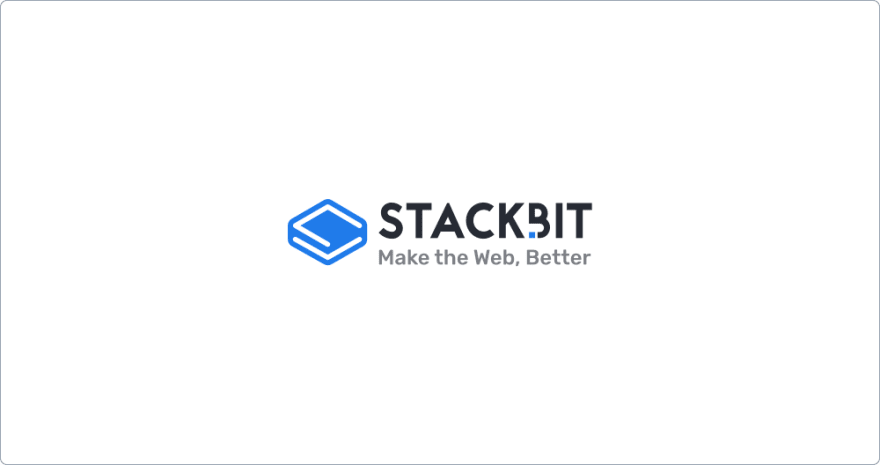Introduction
From an outsider's perspective, Developer Advocacy can often seem like nothing but an endless stream of tweeting, live streams, and convention circuits. However, building developer communities involves a lot more than just being an influencer. Advocacy requires building a foundation for developers to bring their voices together and share them with your organization. As Mary Thengvall says:
Avocados take a long time to ripen, and it’s an even longer process if you take into account that it takes 5 years for an avocado tree to be fruitful.
Just like the avocado's journey from seed to tree, a sustainable Developer Advocacy program takes time to develop. In this blog post, I am going to share some of my favorite tools for building a vibrant developer community. Some of these tools may be familiar to you, and some may not be.
1. Stackbit
Stackbit is an open and complete platform that allows users to create fully-featured Jamstack sites in seconds. The platform is an open ecosystem and allows users to bring their own framework and Headless CMS or choose from the best available tools. I used it for this blog and it has cut the time it takes for me to create sites exponentially.
Pricing: $29/mo
2. Circle
Circle is a community management platform that allows you to establish a central presence where your community can come to collaborate, share resources, attend events, and receive updates. Some of the notable features Circle provides are:
- Set up membership communities
- Live streams
- Q&A Support
- 1:1 Chats
The platform is growing in popularity and being used by many awesome communities such as Community Club and Teal. If you navigate to their pages, you can get a feel for what a typical Circle setup looks like for a community.
Pricing: $39/mo
3. Commsor
Commsor is billed as a "Community Operating System". This means that by integrating with all the tools you already use and tying your community data together, Commsor enables you to unlock insights, measure impact, and build a community-led organization.
This approach is very beneficial for organizations that struggle with selling the benefit of DevRel to their executive team, and need a solution that can be connected to certain OKR's and KPI's.
It's also worth mentioning the Commsor is also the team behind the Community Club that I mentioned in
Cost: Contact for a Demo
4. Run the World
Run The World is an online events platform that caters to over 40,000+ speakers and event hosts by providing a platform where they can monetize their events through ticketed virtual events.
The platform allows its users to sell tickets to both small and large events. A smaller event would cover about 50-100 whereas a larger event would attract a gathering of about 500-3,000 attendees.
Cost: $99/yr
5. Orbit
To understand what Orbit as a platform is, it's important to first understand what Orbit as a _model _ is. The Orbit Model is a framework for building high gravity communities. A high gravity community is one that excels at attracting and retaining members by providing an outstanding member experience.
The Orbit Model contains four fundamental concepts: Gravity, Love, Reach and Orbit Level:
- Love is a member's level of engagement and activity in the community.
- Reach is a measure of a community member’s sphere of influence.
- Gravity is the attractive force of a community that acts to retain existing members and attract new ones.
- Orbit levels are a practical tool for member segmentation and used to design different programs for each level of the community.
The Orbit Platform is a "community experience" platform for high gravity communities. Personally, I feel like this platform is very similar to Commsor, but the thing that sets it apart is the fact it leverages the Orbit Model to measure the health of your community to prove ROI. The platform itself is still a bit glitchy, but the community is very active and available. This is one of the tools I would not personally use ATM but I'm very excited to see what it becomes.
Pricing: TBD (Beta)
6. Instruqt
Instruct is a scalable and customizable platform for creating interactive learning environments that have the ability to be run right in your browser. This allows you to offload part of the developer education process and intentionally create a self-serve "academy" portal for your community to receive hands-on product education right in their browsers.
Pricing: Contact for a demo
Honorable Mention: LaunchPass
LaunchPass deserves at least a mention because of its novel ability to monetize Slack and Discord communities. For those of us in the DevRel space who prefer the solo track, it's important to have ways to monetize the communities we build and turn them into a stable income.
Pricing: $29/mo
Conclusion
Building a sustainable community is hard, but with the right tools and processes, it doesn't have to be chaotic. Hopefully, this small compilation of my favorite tools is beneficial to you, but if you would like a more complete list of the ecosystem you should give Community Club's Tools & Software List a peek! There is a huge amount of information there about what types of tools are out there. Thanks for reading!












Top comments (0)